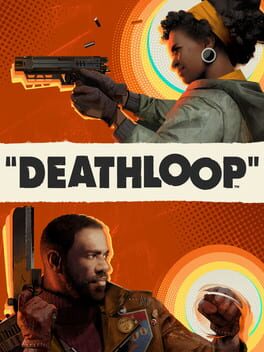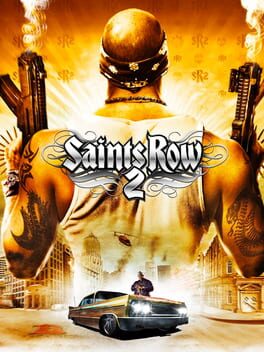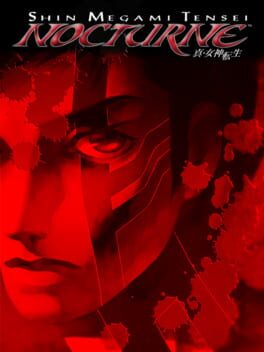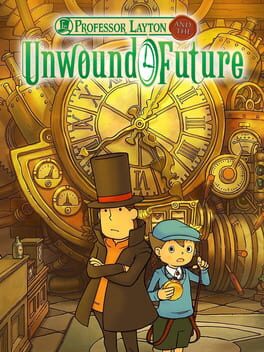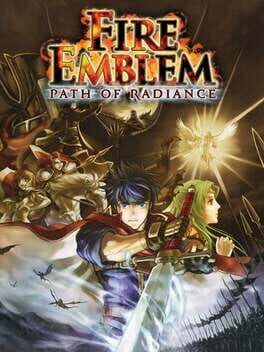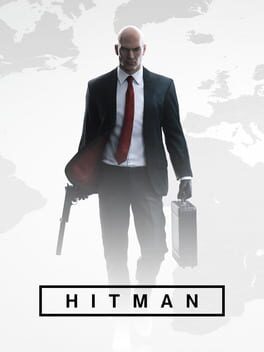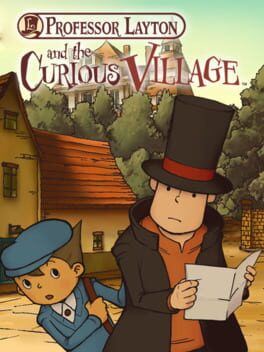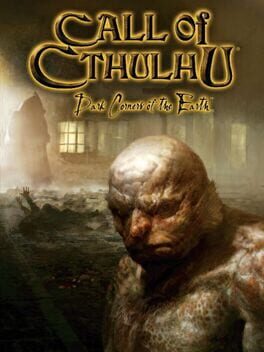Nyth_Grandbeard
2021
Deathloop is the newest game from Arkane studios at the time of writing this review, and it carries the mantle of the sandbox style gameplay we have become accustom to through their similar games like Dishonored, and Prey. And i'm happy to report that this game does in fact carry that legacy on with style and grace, but it isn't without it's flaws. Deathloop is set in an alternate 1960s where scientists have discovered an island with an odd anomaly where the same day loops over and over again, and it's up to our protagonist, Colt, who wakes up on a beach with no memories to try and break the loop and not only set himself free but also the inhabitants of the island, willing to or not. This simple premise is what ties together the big mechanic of the game and that is the looping day system. This is where the same day is played on repeat until you break the loop. The day is split into 4 sections, morning, noon, afternoon, and evening, and within these four blocks you have to try and figure out how to take out all 8 targets in 1 run to be able to break the loop. The gameplay is your standard first person shooter fare in terms of gun play but with the added element of you gun having the potential to jam. This can cause some intense moments when surrounded by hostiles. This game also incorporates supernatural powers for colt to use to be able to traverse and manipulate the world around him to better achieve his goals. Some of these abilities are familiar ones from Arkane's other games while others are new, but all remain as fun to play around with as ever. My biggest gripe with the game is the lack of any pacifist route which has been present on Arkane's other sandbox offerings. Pacifism routes are probably my favorite aspect of Arkane's library due to the added challenge and unique plot elements presented through taking non lethal methods. Sadly this game exclusively opts for a shoot first ask questions later approach which made the game feel a little too easy at times. But once I got my head in the right space and started going in guns blazing I had a much more fun time. There is also the aspects of invading which you can be invaded by other players who take the roll of Julianna to try and stop you from breaking the loop but unfortunately by the time I played the game the servers were rather empty and more often than not I ended up fighting just NPC Julianna's, and when I tried to invade others it would take upwards of 10 minutes to find someone else. Regardless the game is still a blast, the story is engaging especially towards the end, and the world is dense with so many details that it feels really lived in. Here's to hoping Arkane's next offering isn't an exclusive to Xbox consoles so I am able to give it a try.
2008
Saints Row 2 is the follow up to Voliton's 2006 open world sandbox crime simulator, Saints Row, and they wasted no time expanding the scope, and story telling if this game compared to it's predecessor. The game still maintains the comedic tinge that the first game established while going down a more dark, and twisted route than before. We regain control of our Playa from the first game, who now takes on the reigns as the Third Street Saint's boss, and he is not messing around. In the years he was in a coma, all of the city of Stillwater has fallen into the hands of new and upcoming gangs and corporations, and the Playa wastes no time reminding the new gangs who the Saints are and reclaims the city for themselves. There are several moments where the Playa goes off the deep end and does some pretty heinous murders, and crimes as it seems the coma he endured may have left some screws loose. But even though there are plenty of depraved and grim moments to be had throughout the story, the game doesn't forget it's comedic roots as it takes pleasure in making jokes out of dark situations, and it never really seems to take itself so seriously where you'll really be feeling bad about any of the crimes you may commit. Much like the first game there are plenty of customization options and activities for you as the player to enjoy. While the game is still not as fantastical as later entries, it still delivers a fun and engaging time that anyone who is a fan of any of the other saints games or GTA games will be left with a good time.
A truly underappreciated masterpiece of the PS2 era. Everything from the artwork, music, graphics, and gameplay hold up extremely well today. This game also laid down the foundation in which modern Megaten is built up from with the Press Turn System. Without this game we wouldn't have a Persona 5, or SMTIV.
The Unwound Future is perhaps one of the best puzzle games I have played in recent memory. The puzzle selection is just superb, the environments to explore are amazingly detailed for a regular DS title and it's all amplified by the wonderfully zany and cartoony world that Professor Layton and crew inhabit. The story this time around takes some emotionally impactful twists and turns i'd never to expect to see in this particular series. The best way I could describe the unwound future is that it's both parts gleeful, and sad and does both with grace. The twist at the end of this game is perhaps the most unbelievable out of the bunch but by this point it's to be expected, and it works perfectly to convey a resonant and impactful story that will surely leave you thinking about the events that just unfolded for years to come. My only major complaint is that i'm not 100% on board with how Layton acts so dismissive around Flora, but it seems like i'm not the only one of that opinion. Otherwise this is an excellent journey and great way to cap off the original trilogy of the Layton Series. Next is the Prequel trilogy, and i'm really curious how they will approach the story from that angle.
Fire Emblem Path of Radiance is very interesting and unique entry in the series out of the few I have played as of writing this review. As chapter 1 of the Saga of Ike, and the plight of the Laguz, the game's themes and subject matter feel more mature and profound when compared to some of the other entries. The world of Tellius is wrapped in lots of gray morality, and complex issues that really bring the world to life as you watch the various factions that make up the world share intricate politics between each other. The gameplay is also very fun to play through, as there are various little quirks and design flaws in the AI that allow for a fun and sometimes exploitable way to take down certain maps without feeling broken. There are of course somethings that the game can improve on such as stream lining some of the menus, as well as making certain mechanics more clear to the player. There is also the issue of this game's translation being a little bizarre at times. This game tackles a lot of adult and mature themes, but the wind can really be taken out of a scene when school yard insults are being tossed around every two seconds, but it's not the end of the world as none of the key plot points, or story is lost in translation. My biggest gripe with the game is that the pacing towards the end feels so disjointed and off balance in an otherwise well paced adventure. Perhaps it had to do with the looming thought of the Wii being unveiled right around the corner that led to them rushing the end, or maybe the feeling of making the game's run time a little too long. What ever the reason the last 9 or so chapters felt kind of like a chore to get through, however there were some stand out moments for sure. I cannot wait to see what adventures Ike and the Greil Mercenaries get up to in the next game as I'm sure it'll be exciting.
2009
A truly timeless classic that breathed life into a whole genre. While some people may have a problem with how this game is more linear than it's decedents, I find the linear level design to be truly engaging and keeps you on your toes. The MIDI sounding music is cheesy in the best possible way, and the gameplay is some of the most addicting to play.
2016
An interesting, and engaging soft reboot for the Hitman franchise. From the ashes of Hitman Absolution, comes this game which is a refreshing take on this sandbox like genre. The freedom given to the player to try different takedowns is a really addicting aspect of this game and allows for a ton of replay value. My major complaint is the story is a little muddled and lacking for the most part. I wish they would have put a little more time into fleshing out the overall narrative, but given how constrictive Square Enix was to their western developers at the time I can see why the story was cut a little short. Overall my experience is a positive one and I can't wait to see what the next game in this reboot series has in store!
25th Ward is the sequel to Silver Case and is the 4th game in the Kill the Past series following Silver Case, Flower Sun and Rain, and Killer7. One thing I really enjoy about 25th Ward is the characters, the new cast of characters all feel very engaging and fun, as you learn their stories and their relationships. Unlike the first game, this game is split into 3 story arcs, as opposed to 2. First we have Correctness which is the main story line featuring Shiroyabu, and Kuro, two detectives in the titular 25th Ward as they investigate the dark going ons happening around the ward. Next is Placebo which puts us back in the shoes of an amnesia raddled Tokio Morishima, as he tries regaining his memories, and finally we have Matchmaker which follows Tsuki, and Osato, to members of the Regional Adjustment Bureau in charge of making sure everything stays on track in the 25th Ward. Stepping back and looking at it as a whole, the game's story is very good and is a worthy follow up to the first game however, the plot in my opinion meanders a bit too much for my liking. For the most part the original Silver Case was a very tight and concise story with very little fat around the edges however this game is nearly double the length, and you can feel it. The game just over stays its welcome a little bit in my opinion and drags on a bit much. There are some segments in the story that by the end were completely pointless and could've been cut to greatly reduce the length of the game. Otherwise I think 25th Ward is worth your time, and is a great game for any Suda, and Kill the Past fan.
2020
An excellent, yet flawed game. There is a lot to be enjoyed in this wonderful Open World RPG. As someone who didn't buy into the prelaunch hype, I went in with 0 expectations, and was simply blown away by the lovable cast of characters you interact with in Night City. Much like other titles before it (like death stranding) this game fell victim to high expectations before launch. There are bugs a plenty in this game, yet I didn't feel like it was an end all be all. Other games of this genre (namely Fallout New Vegas) are also riddled with similar bugs yet receive not as much hate. Hopefully this game will see a second life years down the line with some of the bugs ironed out.
As the first entry in the Professor Layton saga, The Curious Village is both a unique, interesting, yet simplistic take on the Point and Click genre of games. It's presentation as a cartoony European adventure in a mysterious and hidden Bavarian styled town is incredibly cozy and enjoyable. This combined with the folk-y accordion soundtrack carries the game for the most part. The story is a little simplistic, but engaging none the less, however the major twist on what the secret of the village is left me with a kind of odd and sour feeling and is probably my least favorite part of the game. The puzzles were fun enough to playthrough, but some puzzles felt too similar to others thus making some of the later ones too easy. All in all Professor Layton as a series has a fun cast of characters and a good enough formula that can easily be improved on, so I can't wait to see what the series has in store next.
2016
The Silver Case is (officially) the first game in the Kill the Past Saga, and is also the first game by Grasshopper Manufacture. This game is also the first true VN I've managed to sit though, and I don't regret it one bit. The game follows several people from the Heinous Crime Unit as they pursue the elusive serial killer, Kamui Uehara, and his influence over the 24 Wards of Japan. And that's all I'll say as It's hard talking about the game without giving too much away, but the game has a really interesting and engrossing story that is split in two parts through Transmitter, and Placebo. These two halves slowly merge together the further you go. The gameplay, yes there is gameplay, is actually not what I expected. We get to play the game through a first person dungeon crawling perspective and I find it very fun to explore and interact with the world but unfortunately these segments are a little short for my taste. My biggest problem however, with this game is the fact that it ends on a bit of cliff hanger, but I can't hold it against it too hard as there are 2 follow ups that continue the story. So overall Silver Case is a great introduction to this universe that would later foster the No More Heroes games, and I highly recommend it to VN and NMH fans alike as there really isn't anything like it out there.
2017
2005
Killer 7 is a highly unique and interesting game for it's era, and as a chapter in the "Kill the Past series." This game is easily one of the most unique, and impactful games on the Gamecube in terms of visual presentation. The cel-shaded graphics give a precursor look to what we would later see in future Kill The Past games such as No More Heroes, but with a more rough angle to it. The gameplay features you running on a set of preset paths where you can chose a direction to go once you reach an intersection. This style of movement took a little getting used to, but it also gave me a hint of the feeling of playing the previous Kill the Past entry, The Silver Case, so after a couple levels I got the hang of it. The combat requires you to stop in place to aim down sights like a rail shooter and hitting targets before they attack you and blow up. Successfully killing enemies gives you thick blood which is then used to trade into levels to further buff your character of choice. Speaking of characters, you play as the titular Killer 7, who are a group of world renowned assassins who all possess the body of Harman Smith, an old man in a wheel chair. You are able to switch between any character in the killer 7 via a safe room through the TV or through the pause menu, each character with their own sets of strengths and weaknesses. My personal favorite to play as were Dan Smith, and Mask De Smith who use a revolver, and grenade launcher respectively. The story primarily follows the exploits of Garcian Smith, one of the "personalities" that reside within the head of Harman smith as he goes on a mostly episodic adventure taking out various targets to help the prevention of terrorism in the United States. The story starts to explore the origins of Garcian and the other Smiths towards the end of the game, culminating in a truly mind bending and interesting conclusion that is sure to stick with anyone for years. Killer 7 is a worthy game to add to your backlog, and a great game in the Kill the Past Series. My only complaints are that I wish the story had more focus during the middle portion of the game, that's not to say that the episodic structure is bad, or that I didn't enjoy those missions, but having them tie in to the overall narrative would've made the game that much better. Also some of the songs in this game are absolutely stunning, but for some inexplicable reason Suda (the game's director) decided the best course of action was to put the best song in the game, Rave On, in a short 5 second section, really an odd choice. But regardless Killer 7 is a game that will forever hold a special place in my memory, and I cannot wait to see what the rest of Kill the Past has to offer.
2007
No More Heroes is a one of a kind game that defied all odds and ended up being a massive success for Suda51 and the rest of Grasshopper, but how does it stack up to the rest of the kill the past series? NMH is a very interesting game in that it feels like an amalgam of various different gaming tropes such as character action combat, open world exploration, and convoluted plots which doesn't only feel like a jab at other developers but also a nod to Suda's previous works. Despite it's glaring commentary on the hyper violence and prevalent tropes in not only in gaming but also anime and movies, the game's messaging in my opinion falls a little flat for me in comparison to the grandiose theming that Suda tackled in his previous works such as Killer7 and Silver Case. But taken as it's own independent work, it does achieve what it sets out to do and for that I can applaud it, but at the same time I was just left wanting a little more out of the game's not so subtle commentary. The gameplay on the other hand is really inventive on how the flow is broken up which is where to be able to go onto the next mission you must complete part time jobs to make enough money to fund your next assignment. However, while this mechanic does over stay it's welcome a little bit by the end, it still is something I will always fondly remember this game for as it is something I hadn't really seen before in a game like this. My only major complaints other than the theming is that the over world map really serves not too much of a purpose other than a buffer between missions since there isn't really a whole lot to see or explore. Overall NMH is a good game, and a fine addition to the KTP lineage, but it may leave some KTP fans a little disappointed with the story.
Call of Cthulhu Darkest Corners of the Earth is a horror action FPS created by the now defunct Headfirst Productions and is set in the preestabilished mythos created by the stories of famed horror author H.P. Lovecraft. The story follows P.I. Jack Walters as he gets caught in a world of supernatural beasts, and dark mysteries as he tries to get to the bottom of 6 years missing from his memory. The gameplay starts off as investigative first person exploration game having you read notes and letters, talking to NPCs, and sneaking around alleys and locked buildings. As the game progresses however, the game becomes more and more of a straight forward FPS with sub par gunplay, but with interesting mechanics thrown in such as the sanity meter which actually predates games like Amnesia the Dark Descent. The game also suffers from the issue of unskippable cutscenes which can really be annoying when some lean on the couple minute range and you have to retry bossfights multiple times. Some of the level design can also feel a little uninspired while other locations can drip of excellent atmosphere. For a solid 6 hour adventure this game will deliver plenty of thrills, chills, and an interesting story that will leave you thinking for years to come. There was clearly some attempt to set up sequels and a continuing story line, even confirmed by the devs, with 2 cancelled projects. Sadly this game will forever remain as a solo experience, and as the start of what could've been something bigger.
